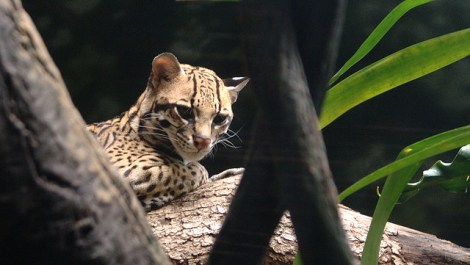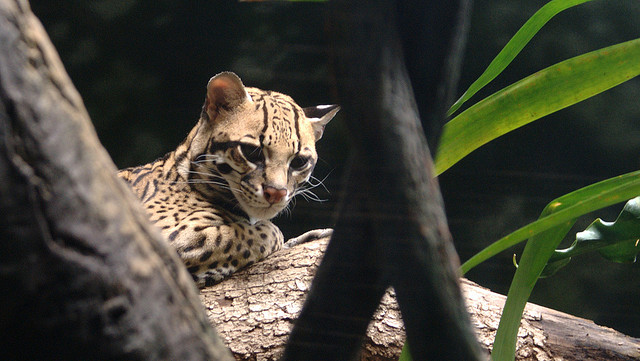Los Angeles Dodgers pitcher Josh Beckett is known for a few things: his goofy soul patch, the necklaces he often wears, his ability to beat the Yankees regardless of the league he plays in. One thing he has not been known for, until now: his love of ocelots.

SkrewtapeThis is an ocelot.
The ocelot is a small, endangered member of the leopard family that lives primarily in Central and South America, but there are regions of southern Texas where the animals can still be found — including on a ranch Beckett owns in La Salle County. Until recently, a section of the ranch was home to ocelot habitat. Now, that section is home to a pipeline constructed by a fracking company. With time on his hands (given the Dodgers’ failure to make the post-season) and a competitive spirit, Beckett is suing.
From MySanAntonio:
According to the lawsuit, filed Tuesday in Laredo, Eagle Ford Midstream and its parent company Midstream, told the U.S. Fish and Wildlife Service, which is charged with protecting the endangered species, there was no ocelot habitat on Beckett’s 7,000 acre South Texas ranch.
The pipeline company then continued with survey work for constructing the pipeline despite ranch representatives giving it an alternative route and letting it know it would be sued in federal court if it continued. …
The notice of intent to sue stated that “multiple big cat tracks” were located and photographed as recently as June, and Beckett observed ocelots on his property as recently as November.

Keith AllisonThis is a Josh Beckett.
Disputes between landowners and fossil-fuel companies in Texas are nothing new, to be sure. But with only around 50 ocelots left in the United States, the destruction of the habitat is significant.
Michael Tewes, a large-cat expert from the Caesar Kleberg Wildlife Research Institute at Texas A&M University-Kingsville, visited the ranch after the pipeline corridor was cleared and identified ocelot habitat, including where the pipeline would be built.
“They started bulldozing for 10 days,” said environmental lawyer Jim Blackburn, who is representing Beckett Ventures, which owns the Herradura Ranch. “I think it is an arrogant move of a company that is relatively dismissing of federal law.”
Tip for fossil-fuel companies: Don’t destroy endangered animal habitats. And be particularly careful when it threatens to anger someone who knows a lot of guys with baseball bats.



